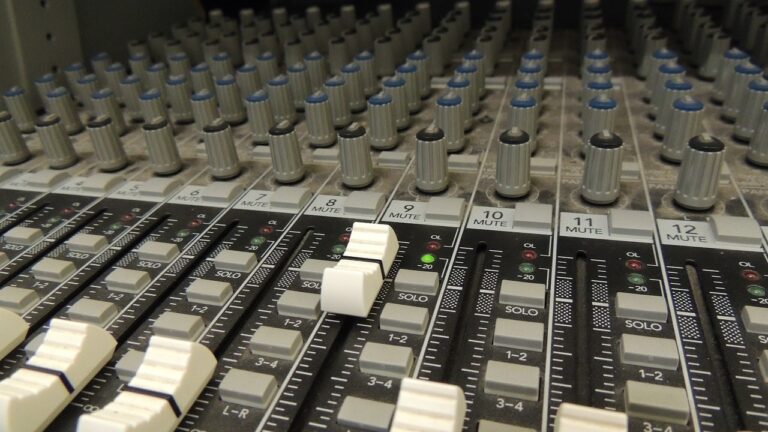Innovations in Music Label Production Techniques: From Analog to Digital: Allpanel mahadev, Lotus 365.fun login, All panel login
allpanel mahadev, lotus 365.fun login, all panel login: Innovations in music label production techniques have transformed the way we listen to music, from the analog era to the digital age. These advancements have not only made music production more efficient but also improved the overall quality and accessibility of music for listeners worldwide.
Analog Era: The Roots of Music Production
In the analog era, music production was a laborious process that involved recording music onto physical tapes. Sound engineers would meticulously splice tapes together to create seamless tracks, a time-consuming and often imperfect process. Despite the challenges, some of the most iconic albums in history were created during this era, showcasing the raw talent and creativity of artists and producers.
Introducing Digital Recording: A Game-Changer
The introduction of digital recording revolutionized the music industry, allowing for greater flexibility and precision in the recording process. With the advent of digital audio workstations (DAWs), producers could now edit and manipulate tracks with ease, opening up endless possibilities for creativity. This shift paved the way for a new wave of music production techniques that continue to evolve to this day.
The Rise of Auto-Tune and Sampling
Auto-Tune, a pitch-correction software, has become a staple in modern music production, transforming the way vocals are recorded and edited. This technology has been used in countless hit songs, from pop to hip-hop, allowing artists to achieve the perfect pitch and tone effortlessly. Similarly, sampling, the practice of reusing pre-recorded sounds in new compositions, has become a popular technique in modern music production, adding depth and texture to tracks.
Mastering and Distribution in the Digital Age
In the digital age, mastering has become an essential step in music production, ensuring that tracks sound consistent and polished across all platforms. With the rise of online streaming services, mastering engineers play a crucial role in optimizing music for digital distribution, ensuring that tracks sound their best on various devices and platforms.
FAQs
Q: How has the shift to digital production impacted music labels?
A: The shift to digital production has streamlined the music production process for labels, allowing for faster turnaround times and lower production costs.
Q: What role do mastering engineers play in music production?
A: Mastering engineers play a crucial role in optimizing tracks for digital distribution, ensuring that music sounds consistent and polished across all platforms.
Q: What are some upcoming trends in music label production techniques?
A: Some upcoming trends in music label production techniques include the use of artificial intelligence in music creation and the continued integration of virtual reality and augmented reality in music videos and live performances.
In conclusion, innovations in music label production techniques have transformed the way we create and consume music, from the analog era to the digital age. With advancements in technology and a constant push for creativity, the future of music production looks bright, promising even more exciting developments to come.







